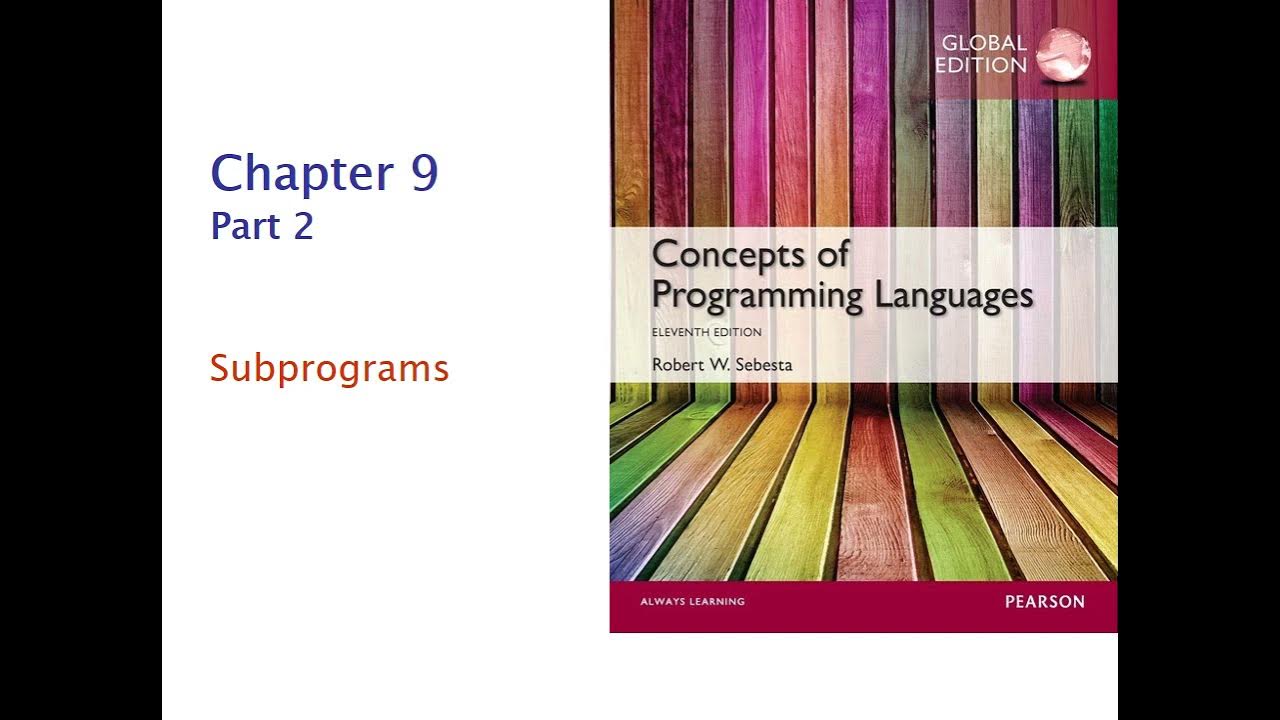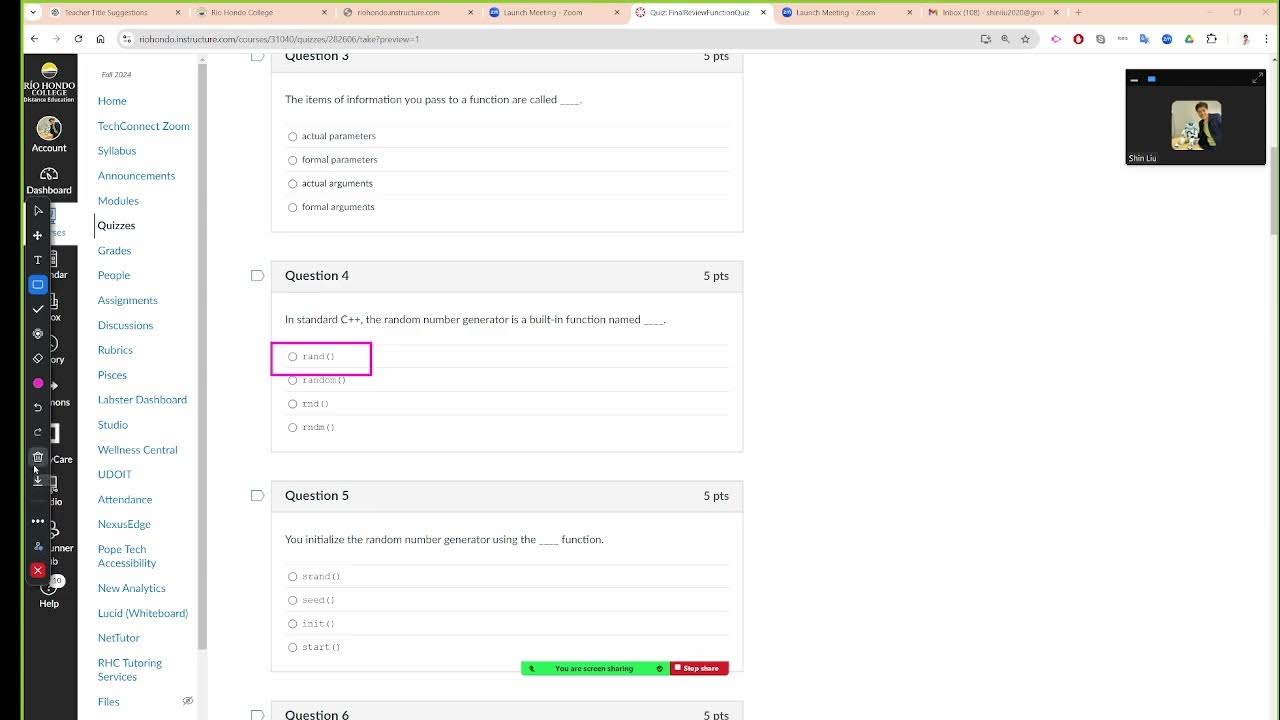136. OCR A Level (H046-H446) SLR23 - 2.2 Functions & procedures
Summary
TLDRThis video covers key programming concepts such as modularity, functions, procedures, and parameter passing by value and by reference. It emphasizes the importance of breaking large programs into smaller modules, with functions returning values and procedures performing tasks without returning values. Practical examples in languages like C# and Visual Basic are discussed, and viewers are encouraged to implement the concepts in real code. The difference between passing parameters by value and by reference is explored, with insights on how these approaches affect memory and program behavior. The video aims to prepare students for programming exams.
Takeaways
- 📦 Modularity is the concept of breaking a large program into smaller, manageable modules, each performing a specific task.
- 🔄 Procedures are blocks of code that take zero or more parameters and perform a task without returning a value.
- 🔢 Functions are blocks of code that take parameters, perform a task, and return a value.
- 📊 Procedures and functions allow code reuse, making programs easier to manage and debug.
- 🏗️ Functions can return values to variables or directly into other functions like `console.writeline` in C#.
- 📋 The interface of a subroutine specifies its name, the parameters it needs, their order, and data types.
- 💻 In Visual Basic, `ByVal` and `ByRef` control how data is passed to subroutines—by value or by reference.
- 📐 Passing by value creates a copy of the original variable, meaning changes don't affect the original value.
- 🔗 Passing by reference passes a pointer to the original variable, so changes within the subroutine affect the original.
- 📝 For exams, it's important to understand the differences between functions, procedures, and parameter passing methods (by value and by reference).
Q & A
What is modularity in programming?
-Modularity is the concept of breaking a large program or problem into smaller, manageable chunks. Each module is designed to carry out a single specific task, making the code easier to maintain and understand.
What is the key difference between a function and a procedure?
-A procedure is a block of code that performs a task but does not return a value, while a function is a block of code that performs a task and returns a value.
Can you explain an example of when a procedure might be used?
-A procedure might be used when you need to output a high scores table to the screen. In this case, the procedure would handle printing the scores but would not need to return a value to the rest of the program.
How is a function different when used in a programming task?
-A function is used when you need to return a value to the calling part of the program. For example, a function might calculate the square root of a number and return that value for further use in the program.
What does it mean to pass parameters by value?
-Passing by value means that a copy of the parameter is passed to the subroutine, so any changes made to the parameter inside the subroutine do not affect the original variable outside of it.
What does passing parameters by reference mean?
-Passing by reference means that a reference or pointer to the original variable is passed to the subroutine. Changes made to the parameter inside the subroutine will affect the original variable.
What are the key differences between passing by value and passing by reference?
-The key difference is that passing by value sends a copy of the variable, so changes inside the subroutine don't affect the original. Passing by reference sends the actual memory address, so changes inside the subroutine directly alter the original variable.
Why is it considered good practice to write modular code?
-Modular code is easier to maintain, understand, and debug. By breaking down a large program into smaller modules, developers can isolate and fix issues more efficiently and reuse code across different parts of a program.
Why is passing by reference considered bad practice in some modern programming languages?
-Passing by reference can create implicit dependencies, where changes to a variable inside a function can affect the calling function’s variable. This can make the program harder to understand and debug, so many modern languages prefer passing by value.
What does it mean when modern languages pass variables of reference types by value?
-In modern languages, variables of reference types store a reference to an object rather than the object itself. When passed by value, the reference (pointer) is passed, but the actual object data remains unchanged, combining aspects of both pass-by-value and pass-by-reference.
Outlines

This section is available to paid users only. Please upgrade to access this part.
Upgrade NowMindmap

This section is available to paid users only. Please upgrade to access this part.
Upgrade NowKeywords

This section is available to paid users only. Please upgrade to access this part.
Upgrade NowHighlights

This section is available to paid users only. Please upgrade to access this part.
Upgrade NowTranscripts

This section is available to paid users only. Please upgrade to access this part.
Upgrade NowBrowse More Related Video

Call By Value & Call By Reference in C

C++ programming, Void function, get input by reference, call function by value and by reference

COS 333: Chapter 9, Part 2

Capítulo 4 - Funções de usuário: Parâmetros

C++ Final Review Function Quiz 10 questions

ССЫЛОЧНЫЕ И ЗНАЧИМЫЕ ТИПЫ C# | СТЕК И КУЧА C# | REFERENCE AND VALUE TYPES C# | C# Уроки | # 38
5.0 / 5 (0 votes)